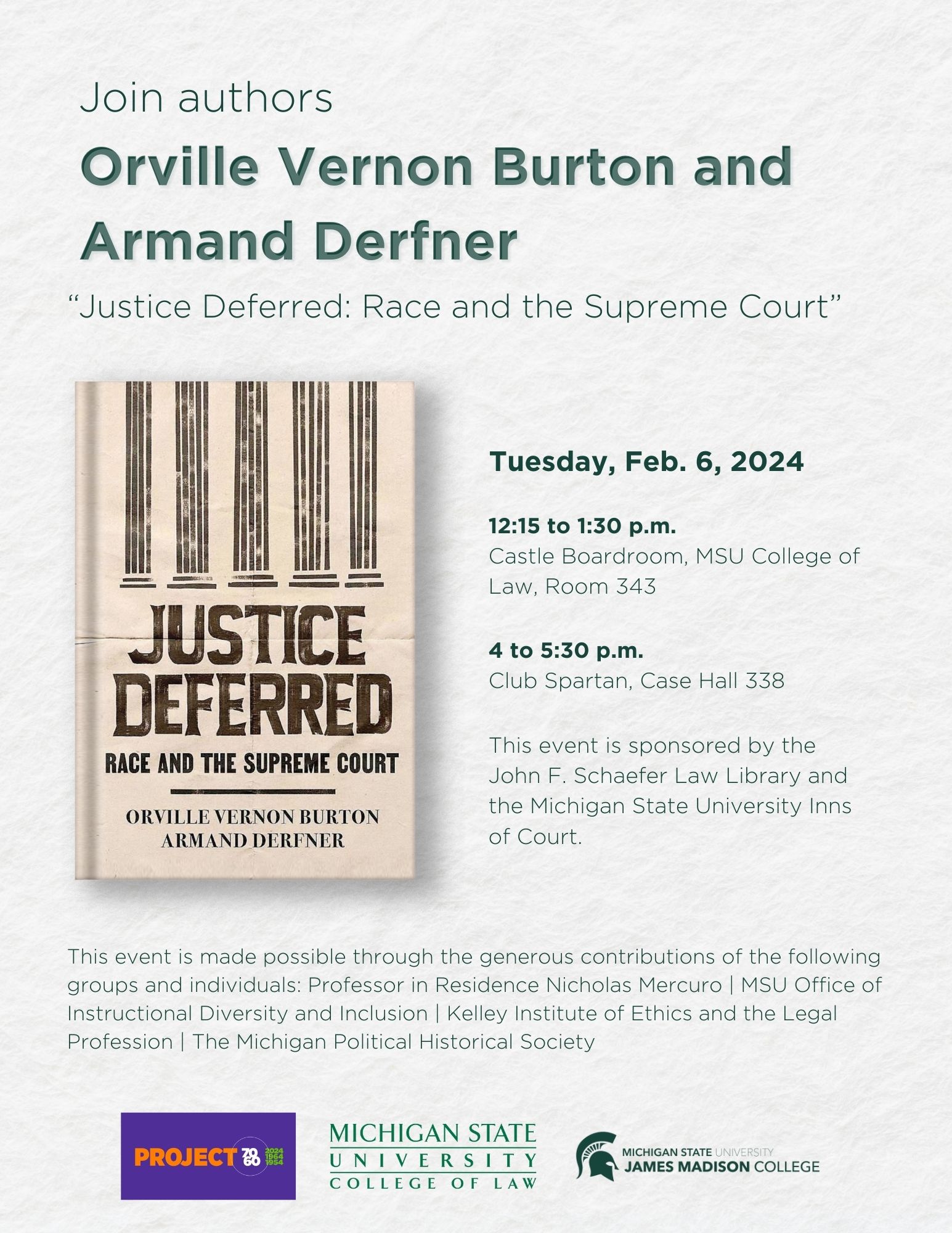Timothy Innes is the reference and academic outreach librarian in the John F. Schaefer Law Library for the Michigan State University College of Law.
The Supreme Court is usually seen as a protector of our liberties: It ended segregation, was a guarantor of fair trials, and safeguarded free speech and the vote. Authors Orville Vernon Burton and Armand Derfner point out in their landmark book “Justice Deferred: Race and the Supreme Court,” the reality is more complicated, especially in the area of race and civil rights. Those accomplishments date from a short period in history, from the early 1930s to the early 1970s.
Before that time, the Supreme Court spent much of its history ignoring or suppressing those rights, and in the half-century since the early 1970s the Court’s record on civil rights has retreated far more than it has advanced. Addressing nearly two hundred cases involving America’s racial minorities, the authors probe the parties involved, the justices’ reasoning and the impact of individual rulings. “Justice Deferred” tells us about the heroes such as Thurgood Marshall; villains, including Roger Taney; and enigmas like Oliver Wendell Holmes and Hugo Black. Much of the fragility of civil rights in America is due to the Supreme Court, but as this sweeping history also reminds us, the justices still have the power to make good on the country’s promise of equal rights for all.
"Justice Deferred" was first brought to my attention by a friend who is a member of the MSU Inns of Court. I have a deep interest in the topic having taught American legal history for about 10 years. In addition, I have hosted a podcast titled “The American Legal History Podcast” since 2019, and my friend suggested I should interview the authors. Once I read this very important work, I decided that a simple interview would not do, and was then determined to bring the authors to the MSU campus to share their insights on this critically important aspect of our legal history.
Burton is a prizewinning author of many books, including “The Age of Lincoln.” He is the Judge Matthew J. Perry Chair of History at Clemson University and Emeritus University Scholar at the University of Illinois. Inducted into the Morehouse College Martin Luther King Jr. Collegium of Scholars, he is also a recipient of the Southern Historical Association’s John Hope Franklin Lifetime Achievement Award.
Derfner has been a civil rights lawyer for nearly sixty years as well as a scholar and teacher of constitutional law. He has helped shape the Voting Rights Act in numerous Supreme Court arguments and worked on desegregating state university systems and state legislatures across the South.
Sponsored by the John F. Schaefer Law Library and the Michigan State University Inns of Court, on Feb. 6, both Burton and Derfner will be visiting campus and meeting with students at the MSU College of Law and at James Madison College. All are welcome.
This originally appeared on the James Madison College website.
Learn more about MSU's Black History Month events.
MSU recognizes February as Black History Month. The Spartan community comes together to strengthen resources, programs, research centers and scholarships that support Black students at MSU and to promote an inclusive culture throughout the university. Learn more.


